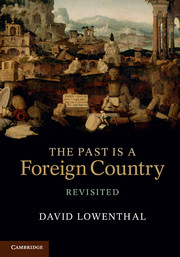8 - History
from Part III - Knowing the past
Published online by Cambridge University Press: 05 November 2015
Summary
Memory dictates, and history writes it down.
Pierre Nora, 1984The historian does simply not come in to replenish the gaps of memory. He constantly challenges even those memories that have survived intact.
Yosef Hayim Yerushalmi, 1982The study of memory teaches us that all historical sources are suffused by subjectivity right from the start.
Jan Vansina, 1980Experience is doubly defective; we are born too late to see the beginning, and we die too soon to see the end of many things. History supplies both these defects.
Henry St John, Viscount Bolingbroke, c. 1735History is that certainty produced at the point where the imperfections of memory meet the inadequacies of documentation.
Julian Barnes, 2011History is protean. What it is, what people think it should be, and how it is told and heard vary with time, place, and person. Clio, the muse of history, was likened in America first to a social butterfly and then to a career woman, in the Soviet Union to a streetwalker or bureaucrat. Routed from her ivory tower, she is today an online dating site. Equally diverse are estimates of her age: one in three Britons think history dates from a moment ago, another third think her ten to twenty years old, the rest date her back to the birth of time. Americans often conflate history with today, terming yesterday antediluvian and tomorrow potentially hoary. ‘I got married when I was 25’, recalls a columnist; ‘that was in the Mesozoic era, and we had no end of trouble keeping the stegosaurus away from the wedding cake’. In line with the Los Angeles dictum that ‘history is five years old’, computer pioneer Steve Jobs sought to demolish his 1926 historic-register house. Jobs claimed ‘I could build something far more historically interesting.’
History extends and enriches, confirms and corrects memory through records and relics. It has come to comprise not only the annals of civilization but of aeons of so-called prehistory. The lack of written records does not mean that preliterates had no history nor does it preclude our inquiries into it. History is transmitted by vision and voice as well as by relics and texts. All manner of depictions – oral narratives, films, folkways, artworks – shed light on prehistoric as well as later times.
- Type
- Chapter
- Information
- The Past Is a Foreign Country – Revisited , pp. 333 - 382Publisher: Cambridge University PressPrint publication year: 2015

